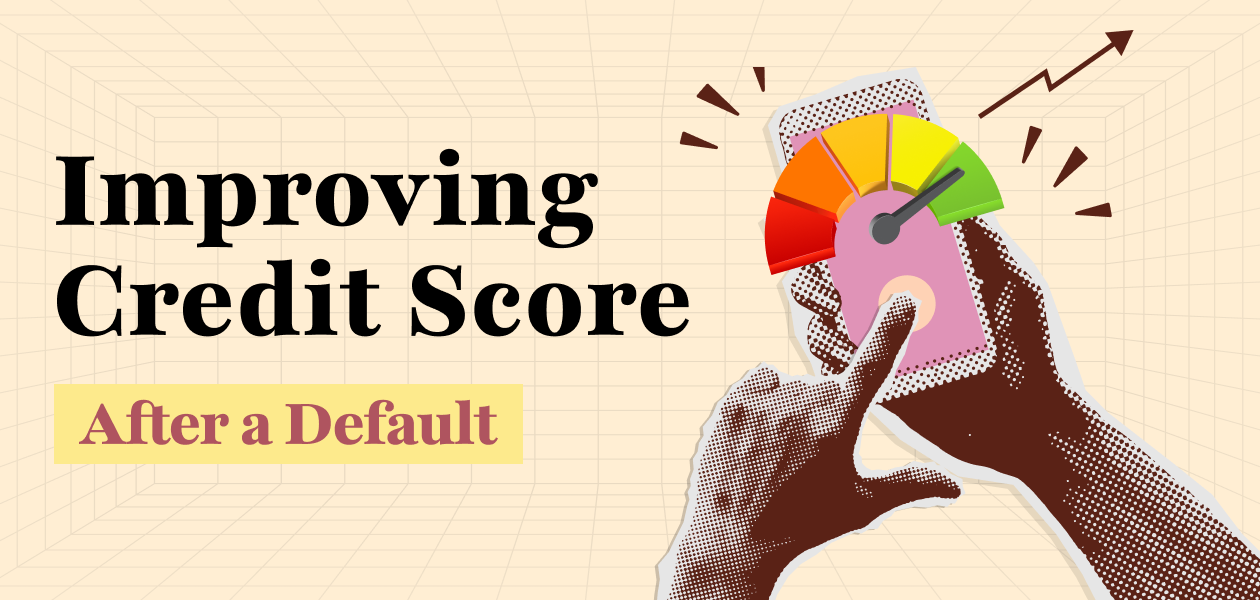15 November, 2024 | 11:00 IST

Credit facilities such as credit cards and personal loans help to meet a wide range of financial needs from big-ticket purchases to home renovation or funding a much awaited vacation. Almost all banks and non-banking financial companies (NBFC) offer various credit instruments based on the credit score of the borrower. If you are looking forward to applying for a new credit card or a personal loan a high credit score could be helpful for faster approval.
The credit score gets negatively affected due to several factors and one of the most detrimental elements for a healthy credit report is default in payments. Any failure in payment of credit card dues or loan EMIs would bring down your credit score. However, by understanding how credit scores work and using a few simple ways you can fix your credit score despite a default.
Table of Contents
A credit score is a three-digit number that provides lenders an idea about your creditworthiness. A good credit score can increase the chances of your loan requests being approved easily. Additionally, a good credit score can also help you in securing a loan at a lower interest rate. Credit scores are based primarily on your history of repaying loans and credit card dues, types of borrowings and the usage of credit facilities.
Credit scores are issued by credit bureaus in India. Currently, four credit bureaus operate in India: TransUnion CIBIL, Experian, Equifax and CRIF High Mark. Credit bureaus are governed by the Reserve Bank of India’s guidelines and regulations. They compile credit scores and credit reports based on an individual’s credit history. Financial institutions like banks and NBFCs use these reports and scores to assess the creditworthiness of a loan applicant before approving their application.
You can check credit score for free on multiple platforms as well as the official websites of the credit bureaus. Digital platforms like Moneycontrol offer free access to credit scores. You can check your credit report for free through the Moneycontrol app and website.
Regularly verifying your credit report can help improve credit score and maintain a high score.
Once you have access to your credit score, it is important to also understand what the three-digit number signifies. The credit score range is based on a scale from 0 to 900. Typically, a higher number refers to a good credit score.
*The credit score range mentioned above is indicative and may vary from bureau to bureau.
A default on a loan or any other credit obligation typically occurs if a scheduled debt repayment is not made within 90 days. A default of any sort places a severe negative entry in your credit reports. Apart from hampering your credit score, it also has a long-term effect as the default entry will remain on your credit reports for seven years.
ALSO READ: What Affects Your Credit Score & How To Build a Healthy Credit Score
While it is advised to not default on your credit debt, individuals often end up in that situation due to reasons such as financial setbacks, job losses and natural or man-made calamities. However, following a few simple steps you can improve your credit score even after a default.
A default on your loan could be a setback for your credit score. However, this is a temporary problem which can be addressed with financial discipline. It is important to effectively manage your money and stay committed to reducing your borrowings. This will help in improving credit score even after a default.
Share it in your circle
Table of Contents
Explore Top Lenders for Instant Loan upto
Get Instant Loan up to ₹50 Lakhs with Zero Paperwork from Top Lenders
 100% Digital
100% Digital Quick Disbursal
Quick Disbursal Low Interest Rates
Low Interest Rates